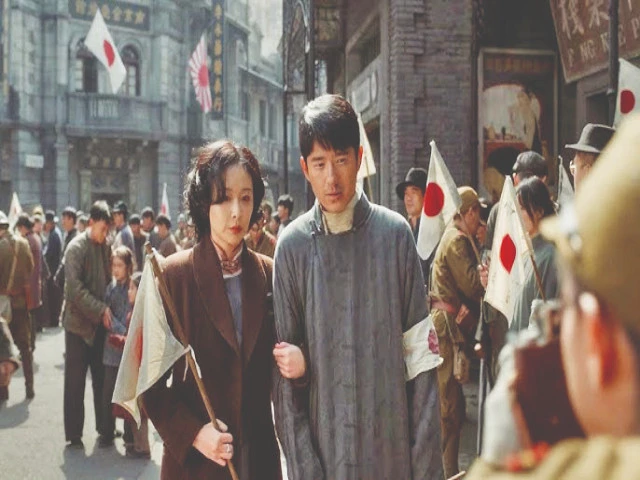'Dead to Rights' breaks China box office earnings record
'Dead to Rights' breaks China box office earnings record

'Dead to Rights', a Chinese film that depicts the Nanjing Massacre perpetrated by Japanese troops in China during World War II, has seen ticket sales surpass ¥2.2 billion or $308 million, during its summer box office run, according to online movie platform data.
Chinese historical drama smashed the record for previous historical films screened during the country's bustling summer movie-going season, which runs from the beginning of June to the end of August each year. As of Monday, China's total summer box office revenueincluding ticket pre-saleshad exceeded ¥8.7 billion, pushing this year's annual box office past the ¥36-billion- milestone.
Directed by Shen Ao, with a screenplay by Shen Ao, Xu Luyang, and Zhang Ke, 'Dead to Rights', was officially released on July 25, 2025 with previews on July 1920. The movie quickly drew attentionearning over ¥30 million from advance sales and exceeding ¥500 million in box office by July 28.
Marking the 80th anniversary of victory in the Chinese People's War of Resistance Against Japanese Aggression and the World Anti-Fascist War, the film is inspired by true events. 'Dead To Rights' draws on the story of the Huadong Photo Studio near Nanjing.
It tells the story of a group of Chinese civilians, who sought refuge in the photography studio during the brutal occupation of Nanjing by Japanese invaders, and how they risked their lives to send photographic evidence of the Nanjing Massacre to the outside world.
The cast includes Liu Haoran, Wang Chuanjun, Gao Ye, Wang Xiao, Zhou You, Yang Enyou, and Daichi Harashima. Critics and audiences praise the movie's restrained yet impactful storytelling, resisting sensationalism in favour of deeper emotional resonance.
At the US Premiere in Washington on August 6, it drew significant emotional response. Ambassador Xie Feng described the film as a potent reminder of war's cruelty and the value of peace, urging global audiences to learn from history.
On the next day, 300 attended screenings in Ottawa, Toronto, Vancouver in Canada. Many were visibly moved, holding up posters and observing moments of silence. The film resonated deeply as a tool for historical education and remembrance.
Critics say that 'Dead to Rights' transcends entertainmentit's a powerful work of remembrance and testimony. Through its quietly intense visuals and rooted historical narrative, it counters historical denial and ensures the atrocities of the Nanjing Massacre are not forgotten.
The movie also encourages dialogue on war, documentation, and testimony through the lens of everyday citizens and has bridged cultural gaps, prompting emotional response and historical reflection around the globe.




















COMMENTS
Comments are moderated and generally will be posted if they are on-topic and not abusive.
For more information, please see our Comments FAQ